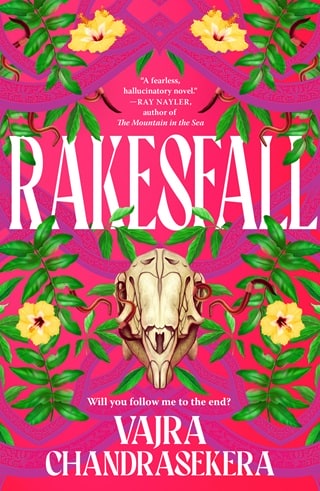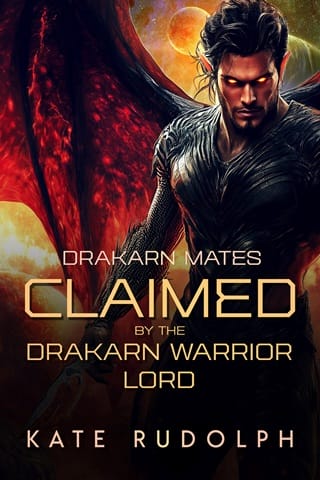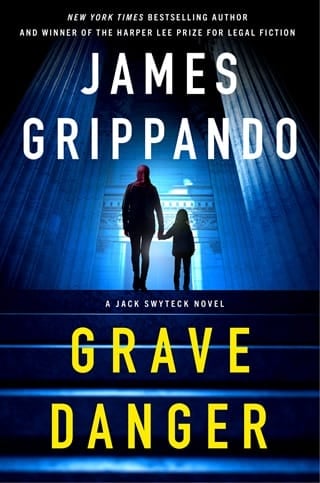Chapter 27 The Sting
Hero waits for a night with a full moon, late enough that the passageways are deserted. He begins climbing from a balcony on the floor of the palace immediately below the ledge with the pool, reaching up to grip notches in the stone that he had sighted from different angles. He hauls himself up past the possibility of a safe return to the palace floor, past giving up on the whole mad idea. This is a risky climb, but is he not the Hero?
He planned with care. He strapped all the equipment he will need to his back, and has practiced carrying the weight. He chose a full moon instead of a new moon because he judged that he would need the light, and that it was worth the slightly increased risk of being seen. At this hour there is no one about except guards on the night shift, and there are none stationed where they might see him. At first the climb is easy, but it gets steeper and steeper as the rock bulges out before it slopes back into the ledge with the pool, so he is leaning backward, the weight on his back heavy and dragging, searching out handholds and footholds, grateful to the moon.
Hanging from the rock with his hands and feet, face pressed to cold stone and resisting the urge to look over his shoulder at the long drop to the ground below, he has second thoughts, perfectly preserved in the unforgiving crystalline memory of the akashic record. They are not thoughts of love or duty or regret, however; they are thoughts of fear. What if he dies falling off the steep rock face before he can even set the trap?
He inches forward, feeling the way with his hands before he commits his weight. The wind is cold and strong, with nothing but night between him and the earth far below, and it whips strands of hair loose from his tight bun, whipping them around his face.
Then he hears the buzzing, and he understands instantly that he is close to ruin. Small membranous wings vibrate invisibly all around him; they brush his outstretched hands, almost making him scream, almost causing him to snatch back his hands and allow himself to fall away from the wasps. But he clings tighter, pressing his face to the stone, not moving. The buzzing grows louder, and wings and small furry bodies brush his arms, his legs, his bare torso, the exposed half of his face. Now he can see the golden bands, bright in the moonlight, on their streamlined black gasters like bullets.
There are some spindly, wind-carved trees clinging to the rock face here and there, which rather add something to the aesthetic, as the king has been known to remark. Hero ignored them in his planning; too fragile-looking to be useful, unlikely to bear his weight. He remembers from his surveys that there is one up ahead, just at the outermost point of the rock before it slopes back again and the ascent gets easier. He could not see all of it from any angle in the palace or on the ground, but it must hold a wasp nest, a great bulbous teardrop, which by virtue of its location has never faced intrusion before.
"I have trespassed on a queen," he says out loud, though it's a whisper through gritted teeth, "I meant no disrespect. My business is only with my father the king."
The wasps buzz closer. They crowd around his head, their wings so fierce and so close that he can feel the wind they generate, the small vortices that push his loose hairs into his eyes. In the buzzing he thinks he hears a voice. It sounds to him like a woman's voice; not like his mother's, less iron and more gold. The voice of the queen. He interprets it as permission, and he keeps climbing.
There is indeed a nest in the tree. It's enormous and grey. He thinks he may have seen part of it from the ground and taken it for an extension of the rock. He moves with care, as slowly as he can, keeping as much distance from the palace of the wasps as possible. An honour guard accompanies him the whole way. One particularly persistent soldier stays near his face, butting him sometimes so high in the cheek that he has to close his eye to be sure she won't brush the eyeball. This, he imagines, must be one of the queen's personal guard, larger and stronger than the average worker. Of course she stays near him; it is the courtesy granted to a serious threat, which his father has never afforded him.
"I, too, am a soldier," he tries to explain to her. "A master of the sword, as you are of your sting. I am a doctor, too; I know full well how mighty your people are. At your merest command, your strike team could cast me off the rock from the pain of your stings; even if I somehow cling to the rock, I risk severe anaphylactic shock, rhabdomyolysis, and myocardial infarction at the very least. Even if I somehow wedge myself into the rock and the roots, I could die here and rot away until I'm a bleached skeleton that you can build another nest in."
The wasp butts his face again, as if to acknowledge his flattery.
Once he's past the nest, the rest of the climb is easy. He's no longer hanging off the rock but climbing up a slope that grows less and less steep until he is merely crawling on hands and knees. The surface below him is flat, he realizes. He has made it to the ledge. He stands up. The pool is before him, the moon looking up at him from perfectly still water. The wasps retreated, once he left their nest behind.
The moon has not moved much in the sky during his climb. It only seemed to take forever.
He unties the pack around his back and gets to work. Once he's done, it's almost dawn.
Escape is simple: he doesn't need to risk the wasps again. The king needs a convenient method of returning to his bedchamber after his morning swim, after all; he has a royal rope ladder installed for this purpose, strong and sturdy, nailed down at the bottom. Hero climbs up the rope ladder almost all the way to the king's balcony, then carefully transfers his grip to the rock face to hide in an alcove of rock immediately beneath it. He'd scouted it out before, during his survey. It is small and as uncomfortable as he estimated, but it is secure, and he can tuck himself away into it. He only needs it for a few hours.
Hero settles in to wait. Here he is invisible except from the pool below, and once the king dives he will doom himself. Hero will then climb up to the bedchamber and announce the death of the king and his own ascension. He will have the guards swear their loyalty to him and accompany him to the throne room. He passes the time in such fantasies, weary from the exhaustion of his labours.
In the morning, the king comes out to his balcony, as per usual. He stretches and greets the sun. He is a little hung over from last night's party; a cold swim would do him good. He looks at his little realm and sees that it is good, then he looks at the perfect mirror of sky, his pool, as he limbers up.
Then he looks again. "What the fuck," says Beloved of All the Arts.
The perfection of the mirror is strangely marred. The water is still, as it always is, bright blue and cloudy. But at the exact centre of the pool, the precise spot that the king prides himself on striking with every dive, there is a wasp sitting on the water.
This seems not quite right. Beloved of All the Arts considers his knowledge of wasps, of water, of surface tension. The wasp is large and beautiful, the golden band so crisp he can see it from a height. It is too heavy to walk like a water strider. Certainly it is not hovering above the water, because he can see its wings are still; they glitter in the morning sun.
He summons a guard; no, three. He sends one down to the pool on the rope ladder. He has the other one watch his back, and the other other one watch the other one. Something is up, and he does not like it. He scratches his belly, feeling aggrieved at being denied his swim. He realizes he is still naked, but eh. The guards have seen worse.
The guard he sent down is stiff and uncomfortable on the rope ladder, swaying alarmingly at several points and nearly losing his footing. The king politely ignores the guard's frightened yelps. Eventually he makes it all the way down, and the king watches him squat by the pool's edge to peer sideways at the water and the miraculous wasp. The guard looks up at the king. His eyes are very wide, the whites almost glowing in the morning light.
"There is a metal spear affixed to the bottom of the pool, Your Excellency," the guard shouts up through cupped hands. "Right in the middle of the water. It looks very sharp. Only the very tip of the point sticks just so slightly out of the water; that's what the wasp is sitting on. Also, the prince Hero is asleep in an alcove beneath the balcony."
The king is annoyed, oh, at so many things right now, but quite possibly most of all at the guard for explaining the case so thoroughly that there is no room for himself, Beloved of All the Arts, to make the final summing-up speech in which all secrets are revealed and the culprit exposed, and that's always his favourite part.
What's left to perform but judgement? The king points at each person in his presence one by one, beginning with the invisible prince under his feet. "Death by ritual suicide; get the fucking spear out; from now on, every morning before I wake up, check the water for traps; find out what wasps like to eat and have plentiful supplies of it sent to the nest down there once a week, with my thanks and compliments."
Hero is so deeply asleep he doesn't wake up until he's dragged from the alcove. The king has long since moved on with his day. The guards manhandle him up the rope ladder—a naked blade touches his throat the moment he appears at the balcony, still muzzy from strange dreams of a bloodied ape stumbling down an unnaturally smooth black road in the jungle. Hero's hands are tied behind his back, his neck garlanded with red hurtflowers, his person shepherded through the palace in a daze, people falling silent and making way as he is guided past them. He thinks he sees his iron mother's stricken face, but he might have imagined that. They climb up more and more steps, go down a long and winding corridor where they see no one at all, until suddenly a door opens and he is outside again. Another ledge of natural stone, but this time a tiny lip in the rock on the opposite side of the hill, barely wide enough for his feet. The guards close the door behind him; the wood touches his bound fingers behind him. He hears the lock and the bolts, then receding footprints, then nothing. His toes stick out over the abyss. There is nothing but sheer rock face on all sides. In front of him is air and sky; far below is a deep and narrow ravine, and beyond it mist and wild jungle as far as the eye can see. The silence is cloying, thick in his ears. He tries to adjust his arms but the ledge is so narrow he doesn't dare move too much; with his hands tied behind him, he can't even press himself back against the door, which is smooth, without ornamentation on which his fingers might find purchase. He imagines he sees bloodstains on the rocks below, but they are perhaps just red rocks. So this is his "suicide"; an execution in all but name. He knows from the guards how his plan failed. He tries to berate himself for the slight error in measurement—the spear should have been entirely beneath the surface of the water, invisible behind the reflected sky—but it's such a small mistake to make in the dark. Anybody could have made it.
The wasp appears before him, descending from above. He thinks it's her, the same soldier wasp.
"Was it you that betrayed me?" he asks. His voice is snatched away by the wind, but the wasp seems to bob a tight spiral of yes. "Why?"
The wasp says nothing, but she holds position, hovering in front of his face.
After a while, he thinks he has it. "You really are like me, but it's not about me, is it? You, too, are struggling for your throne. You've traded me for favours from my father, which will raise your standing in the nest and make it possible for you to overthrow your queen."
In saying so, Hero, comforted by his delusions, leans a little too far forward for emphasis, startling the wasp, who stings him right between the eyes.
—Wait, I say.—What do you mean, delusions?
Grandmother rolls her eyes.—Wasps can't talk, child. Nor are insect queens royalty; the title is only a metaphor. In fact, if you study this particular nest closely in the akashic record, you will find that, like many such nests, it has multiple queens. The traitor wasp, who Hero thought a soldier, was herself a queen, but this in turn has no significance. Wasps are free of thrones and symbolism alike.
 Fullepub
Fullepub 



